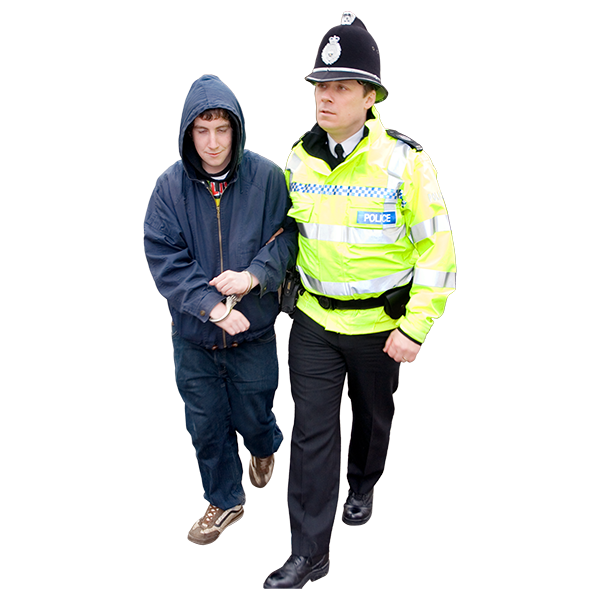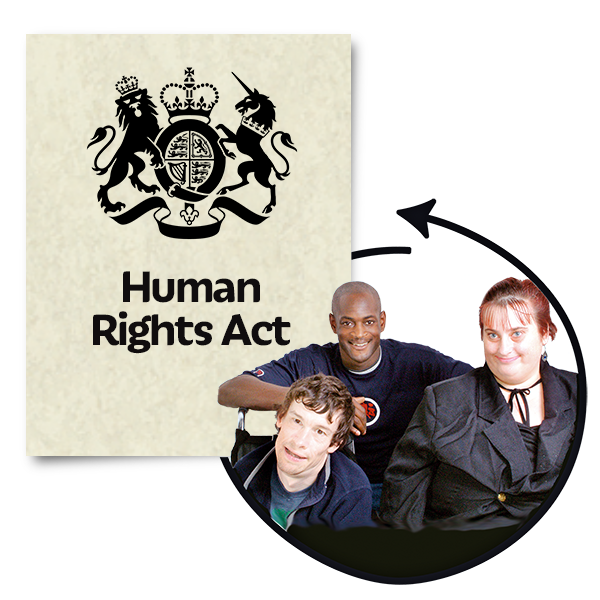Data out today from NHS Digital shows that there are still at least 2,260 [1] adults and children with a
learning disability
 A learning disability is to do with the way someone's brain works. It makes it harder for someone to learn, understand or do things.
and/or
autism
A learning disability is to do with the way someone's brain works. It makes it harder for someone to learn, understand or do things.
and/or
autism
 Autism is a disability. Autistic people find it difficult to understand what other people think and feel. They also find it difficult to tell people what they think and feel. Everyone with autism is different.
locked away in inpatient units.
Autism is a disability. Autistic people find it difficult to understand what other people think and feel. They also find it difficult to tell people what they think and feel. Everyone with autism is different.
locked away in inpatient units.
This is 437 [2] more than the minimum target set by Government in 2015 to move between 35- 50% of people with a learning disability and/or autism out of institutions into
community
 A community is the people and places in an area.
-based support by the end of March 2019.
A community is the people and places in an area.
-based support by the end of March 2019.
“Today's data confirms that the programme has 'officially' not delivered the promises made to people with a learning disability and their families by NHS England and their partners in 2015.
The Government
 The Government are the people who run the country. The Government decide how much tax people should pay and how things like the National Health Service (NHS) should work.
and the NHS have had 8 years to deliver the change promised after the Winterbourne view scandal and this is the second deadline to be missed,” says Dan Scorer, Head of Policy at Mencap. “NHS England promised to close a minimum of 35% of beds, but today’s figures show a reduction of just over 19%. Hundreds of people with a learning disability who should have today been living in the community are still trapped in in-patient settings because of this” continues Dan. “At the moment when people with a learning disability and/or autism reach a crisis point, they end up being admitted to inpatient units, which are completely unsuitable environments for them to be in for long periods - hospitals are not homes, and we know whilst they are there, they can be subjected to physical restraint, overmedication and being kept in isolation. A key reason they are put in these ‘modern day asylums’ is because specialist care and support is not available to them in their local areas to help prevent needs escalating and to manage crisis situations if they do happen. And once they’ve been sectioned, families are then powerless to get them out and people can end up locked away in these units, often hundreds of miles away from home, and for long periods – the average is over 5 years and 16% have been in for over 10 years.” [3]
The Government are the people who run the country. The Government decide how much tax people should pay and how things like the National Health Service (NHS) should work.
and the NHS have had 8 years to deliver the change promised after the Winterbourne view scandal and this is the second deadline to be missed,” says Dan Scorer, Head of Policy at Mencap. “NHS England promised to close a minimum of 35% of beds, but today’s figures show a reduction of just over 19%. Hundreds of people with a learning disability who should have today been living in the community are still trapped in in-patient settings because of this” continues Dan. “At the moment when people with a learning disability and/or autism reach a crisis point, they end up being admitted to inpatient units, which are completely unsuitable environments for them to be in for long periods - hospitals are not homes, and we know whilst they are there, they can be subjected to physical restraint, overmedication and being kept in isolation. A key reason they are put in these ‘modern day asylums’ is because specialist care and support is not available to them in their local areas to help prevent needs escalating and to manage crisis situations if they do happen. And once they’ve been sectioned, families are then powerless to get them out and people can end up locked away in these units, often hundreds of miles away from home, and for long periods – the average is over 5 years and 16% have been in for over 10 years.” [3]
A worrying trend is the number of children in these units, which has more than doubled from 110 in March 2015, to 240 in March 2019. Shockingly the number of reported incidents of restrictive interventions on children in these places e.g. physical restraint, for one month, is also alarmingly high at 875 [4].
Leo Andrade has experienced the trauma of a loved one in an ATU. She fought for 6 years to get her son Stephen out and she is now helping other families. She says: "The care Stephen received was inhumane. This is a
crime
 A crime is when someone does something wrong and breaks the
law
A crime is when someone does something wrong and breaks the
law
 Laws are the rules that everyone in the country has to follow. If you don't follow the rules you can get in trouble with the police.
.
against humanity and a dirty secret in this country. Staff struggled to cope with and understand Stephen’s needs, he was constantly overmedicated. Every time we visited him, it was heart-breaking to have to leave Stephen there. He was covered in bruises and gashes from where he had hit himself from being anxious. The long-term effects of sedation mean that Stephen has now lost the little speech he had. Stephen was bitten and received injuries including a broken clavicle that went untreated for three weeks. After six years, Stephen finally came home and was totally overwhelmed with anxiety. He has panic attacks, and will only access the bedroom and bathroom and still wants to sleep on the floor as this is how he slept at the ATU. After 6 months of being out we are seeing great improvement, but he is still overly medicated because the doctors here not sure what to do about it.”
Laws are the rules that everyone in the country has to follow. If you don't follow the rules you can get in trouble with the police.
.
against humanity and a dirty secret in this country. Staff struggled to cope with and understand Stephen’s needs, he was constantly overmedicated. Every time we visited him, it was heart-breaking to have to leave Stephen there. He was covered in bruises and gashes from where he had hit himself from being anxious. The long-term effects of sedation mean that Stephen has now lost the little speech he had. Stephen was bitten and received injuries including a broken clavicle that went untreated for three weeks. After six years, Stephen finally came home and was totally overwhelmed with anxiety. He has panic attacks, and will only access the bedroom and bathroom and still wants to sleep on the floor as this is how he slept at the ATU. After 6 months of being out we are seeing great improvement, but he is still overly medicated because the doctors here not sure what to do about it.”
“This is a domestic
human rights
 Human
rights
Human
rights
 Rights are the things everyone should be allowed to do like have a say, or go to school.
are the rights that everyone has. These include the right to go to school and the right to start a family.
scandal,” says Dan. “NHS England has pushed its deadline for closing beds back to March 2024 and for the thousands of people still locked away, and their families, that’s too long to wait. The government and NHS need to act on the findings of the independent review into why the change they promised hasn’t happened and say what they are going to do differently this time to make sure it does happen. We want Government to prioritise social care reform and demand that the NHS and Local Authorities work together to reunite families and develop the right support across social care, health and
education
Rights are the things everyone should be allowed to do like have a say, or go to school.
are the rights that everyone has. These include the right to go to school and the right to start a family.
scandal,” says Dan. “NHS England has pushed its deadline for closing beds back to March 2024 and for the thousands of people still locked away, and their families, that’s too long to wait. The government and NHS need to act on the findings of the independent review into why the change they promised hasn’t happened and say what they are going to do differently this time to make sure it does happen. We want Government to prioritise social care reform and demand that the NHS and Local Authorities work together to reunite families and develop the right support across social care, health and
education
 Education is when you learn things. When you fill in a form to get a job, education means you write where you went to school, college or university.
for children and adults with a learning disability in their communities.”
Education is when you learn things. When you fill in a form to get a job, education means you write where you went to school, college or university.
for children and adults with a learning disability in their communities.”
-ENDS-
For further information or to arrange interviews, contact the Mencap press office on:
- email media@mencap.org.uk
- phone 020 7696 5414 (also for out of hours).
Notes to editors
[1] The Assuming Transformation data from NHS Digital (https://digital.nhs.uk/data-and-information/publications/statistical/learning-disability-services-statistics/), is the most accurate and up to date account of people with a learning disability and autism in institutions. It is a record of how many are in an institution, how long they have been in for, when their care and treatment is checked and what kind of unit they are in.
[2] Based on a starting point of 2,805, the latest recorded figure for March 2016 (which is the revised figure reflecting the late data submissions for that month). Transforming Care was launched with the publication of the ‘Building the Right Support’
strategy
 A strategy is a plan to show what an
organisation
A strategy is a plan to show what an
organisation
 An organisation are a group of people who work together.
, or a person, wants to do and how they are going to do it.
in October 2015, announcing a three year programme of work until March 2019. A 35% reduction would have resulted in 1,823 people in in-patient settings.
An organisation are a group of people who work together.
, or a person, wants to do and how they are going to do it.
in October 2015, announcing a three year programme of work until March 2019. A 35% reduction would have resulted in 1,823 people in in-patient settings.
[3] In the Assuming Transformation data from NHS Digital, of those in hospital at the end of March 2019, 1,315 (58%) had a total length of stay of over 2 years and circa 360 people (16%) have been in an ATU for over 10 years.
[4]Figures for restrictive practices quoted from NHS Digital MHSDS Data: January 2019, published April 2019.
The average weekly cost of inpatient care for an individual is around £3,500. According to NAO, in 2012-13 NHS spent £557m on people with a learning disability in mental health hospitals
Mencap is asking the Government to focus on:
- Developing local expertise, support and services
- Ensuring there is joint oversight and ownership of the national programme by the Ministers from the Department of Health and Social Care, Department of Housing, Communities and Local Government and Department for Education.
- Removing the red tape and funding barriers that are preventing so many people from returning home.
Independent Evaluation of Building the Right Support: short summary of the main recommendations from the research done so far, published in October 2018. Research led by the University of Birmingham, BILD, The Strategy Unit and ICF: www.strategyunit.co.uk/publications/building-right-support. The findings support our concerns.
About Mencap
There are 1.4 million people with a learning disability in the UK. Mencap works to support people with a learning disability, their families and carers by fighting to change laws, improve services and access to education,
employment
 Employment means having a job.
and
leisure
Employment means having a job.
and
leisure
 Leisure is when you have time to do things you enjoy like playing sports or going to the pub.
facilities. Mencap supports thousands of people with a learning disability to live their lives the way they want. www.mencap.org.uk
Leisure is when you have time to do things you enjoy like playing sports or going to the pub.
facilities. Mencap supports thousands of people with a learning disability to live their lives the way they want. www.mencap.org.uk
What is a learning disability?
A learning disability is a reduced intellectual ability which can cause problems with everyday tasks – for example shopping and cooking, or travelling to new places – which affects someone for their whole life. Learning disability is NOT a mental illness or a learning difficulty, such as
dyslexia
 Dyslexia is a learning difficulty. People who have dyslexia can find it hard to read, write and spell.
. Very often the term ‘learning difficulty’ is wrongly used interchangeably with ‘learning disability’. People with a learning disability can take longer to learn new things and may need support to develop new skills, understand difficult information and engage with other people. The level of support someone needs is different with every individual. For example, someone with a severe learning disability might need much more support with daily tasks
Dyslexia is a learning difficulty. People who have dyslexia can find it hard to read, write and spell.
. Very often the term ‘learning difficulty’ is wrongly used interchangeably with ‘learning disability’. People with a learning disability can take longer to learn new things and may need support to develop new skills, understand difficult information and engage with other people. The level of support someone needs is different with every individual. For example, someone with a severe learning disability might need much more support with daily tasks
People who may need assessment and support
Individuals sometimes experience crisis situations that may require specialist intervention. At these times, what is needed is a good
assessment
 An assessment is a way of finding out what help a person needs. When you have an assessment, you might have to go to a meeting or fill in a form.
of the cause of the problem, followed by a treatment plan to address those issues and access to good support that is close to home. It should rarely be necessary to admit a person to an assessment and treatment unit (ATU).
An assessment is a way of finding out what help a person needs. When you have an assessment, you might have to go to a meeting or fill in a form.
of the cause of the problem, followed by a treatment plan to address those issues and access to good support that is close to home. It should rarely be necessary to admit a person to an assessment and treatment unit (ATU).
When it is necessary (for instance, when someone may have a complex mental health condition), it should be to a small unit that is close to their home. The facility should be able to provide specialist assessment and treatment, and enable the person to return to their local community as soon as possible.
Many people are admitted to assessment and treatment units (ATUs), and then detained under a section of the Mental Health Act 1983 (MHA). This is sometimes referred to as ‘being sectioned’ or ‘sectioning’. While this may sometimes be necessary, there are concerns that detention under the MHA is being used too frequently, often in circumstances where it is perceived as the last option, where local services have broken down and there is no other alternative. Too many people are being sent away to assessment and treatment units and other institutional settings that are too large and too far from home. Often, people with a learning disability end up in these places unnecessarily, because the right option for them is not available locally or because local services do not possess the skills to understand the cause of their behaviour.